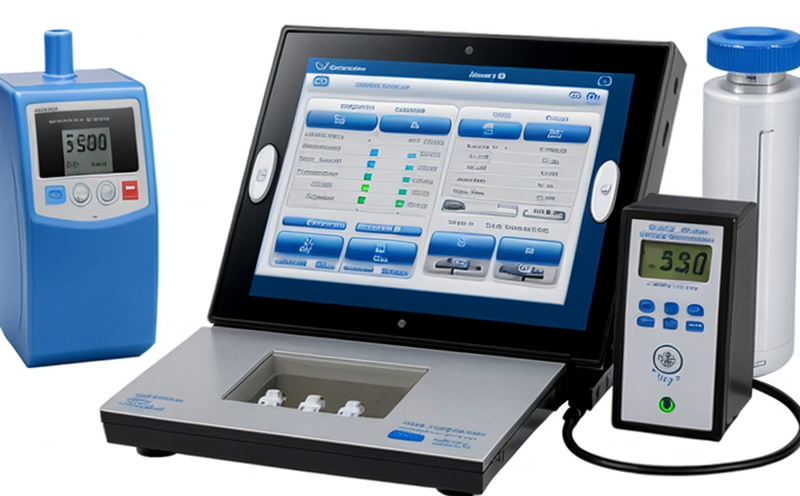Biocompatibility Testing of Infusion Device Materials (ISO 10993)
The biocompatibility testing of infusion device materials is a critical step in ensuring medical devices are safe for use by patients. This testing aligns with ISO 10993, which provides a framework for assessing the potential biological effects of materials used in medical devices. The process involves evaluating various parameters to determine whether a material could cause adverse reactions when brought into contact with human tissues or fluids.
The primary goal of this testing is to minimize risks associated with device-induced infections and other complications. By adhering to international standards such as ISO 10993, laboratories can provide assurance that infusion pump components and drug delivery systems are safe for patient use. This service ensures regulatory compliance while also supporting innovation in medical technology.
Biocompatibility testing typically includes several key evaluations:
- Microbial adhesion and colonization
- Biofilm formation potential
- Release of extractables and leachables
- Cytotoxicity assessments
- Allergenicity tests
- Systemic toxicity studies
- In vivo and in vitro irritation tests
- Lethality evaluations
During the testing process, samples are prepared according to specified protocols outlined in ISO 10993. Specimens may include various materials used within infusion devices such as plastics, metals, elastomers, and coatings. These materials undergo rigorous examination using advanced analytical techniques including chromatography, spectroscopy, microscopy, and histopathology.
Once testing is complete, comprehensive reports are generated detailing findings along with interpretations based on relevant scientific literature. Compliance officers responsible for ensuring regulatory standards are met will find these detailed reports invaluable tools in maintaining quality control throughout product development cycles.
The importance of biocompatibility cannot be overstated given the close interaction between medical devices and human bodies. Even minor issues can lead to serious health consequences, making thorough evaluation essential prior to market release or clinical trial initiation.
Benefits
Comprehensive biocompatibility testing offers numerous advantages both for manufacturers and end-users:
- Enhanced Patient Safety: Ensures that materials used in infusion devices do not cause adverse reactions or infections when in contact with human tissues.
- Regulatory Compliance: Aligns with international standards like ISO 10993, ensuring products meet necessary safety requirements for approval and clearance.
- Innovation Support: Provides valuable insights into material performance helping researchers develop safer, more effective devices.
- Cost Savings: Early detection of potential problems through testing reduces costly recalls post-market release.
By incorporating biocompatibility testing early in the design process, companies can identify and address any concerns before proceeding to production phases. This proactive approach not only minimizes risks but also strengthens brand reputation by demonstrating commitment to patient safety.
Industry Applications
The application of biocompatibility testing extends across multiple sectors within the medical device industry:
- Infusion Pumps: Ensuring that pump components do not release harmful substances into medication streams.
- Drug Delivery Systems: Evaluating drug compatibility and minimizing potential interactions between delivery systems and prescribed medications.
- Catheters & Needles: Assessing the impact of catheter surfaces on blood flow, reducing risk of clot formation or infection.
- Ointments & Creams: Determining whether packaging materials are compatible with topical treatments to prevent degradation or contamination.
In each case, biocompatibility testing plays a crucial role in optimizing device functionality while safeguarding user health. Through precise analysis and adherence to established guidelines, labs like ours contribute significantly towards achieving these objectives.
Environmental and Sustainability Contributions
Beyond human safety considerations, there are environmental and sustainability aspects worth noting:
- Sustainable Material Selection: By identifying non-toxic materials that perform well biologically, manufacturers can reduce waste associated with discarded devices.
- Eco-Friendly Production Processes: Evaluating how manufacturing processes affect ecosystems helps companies adopt greener practices throughout their supply chains.
- Recyclability Assessment: Understanding which components are recyclable ensures proper disposal methods are implemented post-use, minimizing landfill contributions.
The integration of biocompatibility testing into broader sustainability strategies promotes responsible business practices that benefit all stakeholders involved—from raw material suppliers to end-users and beyond.





